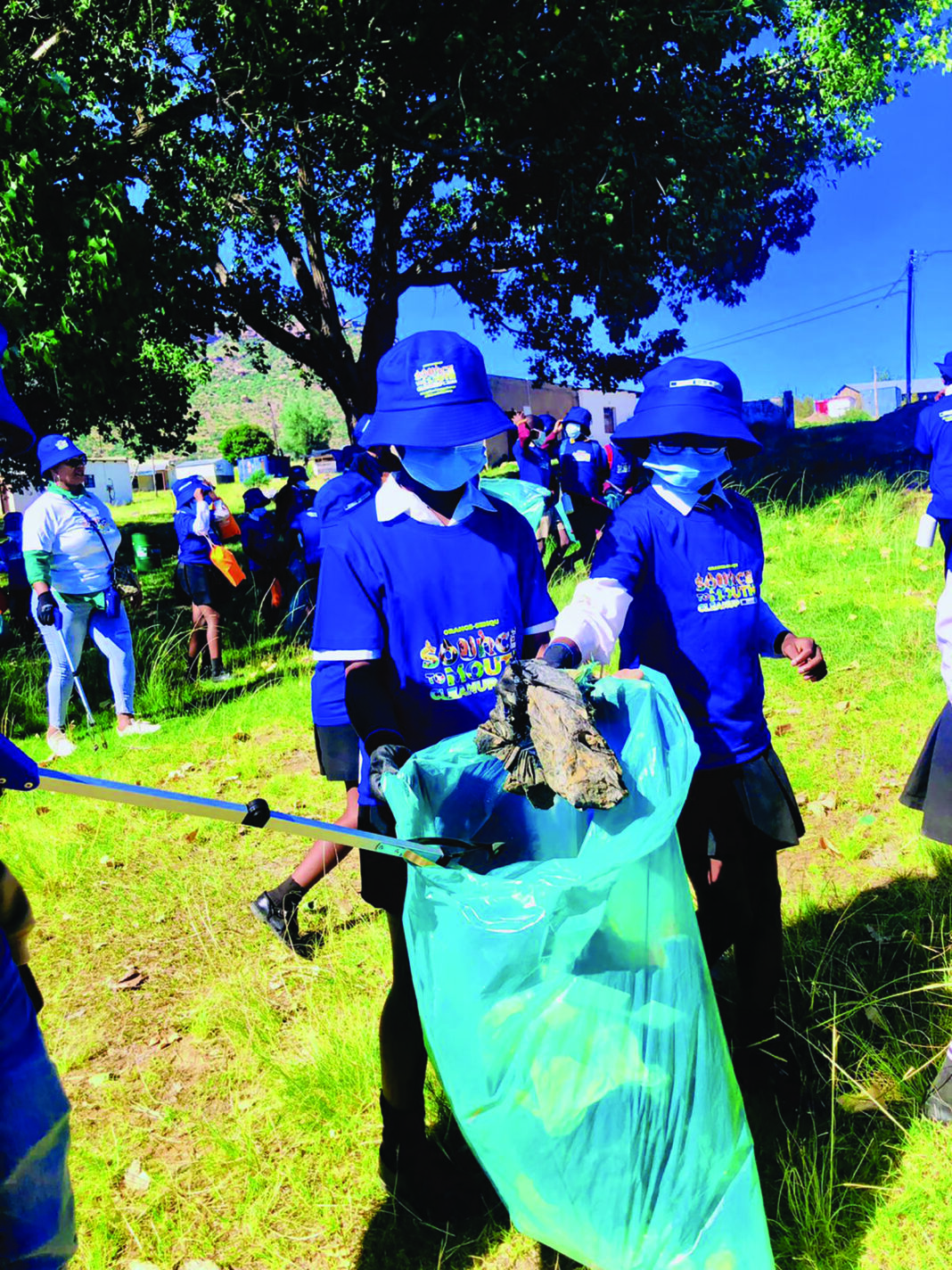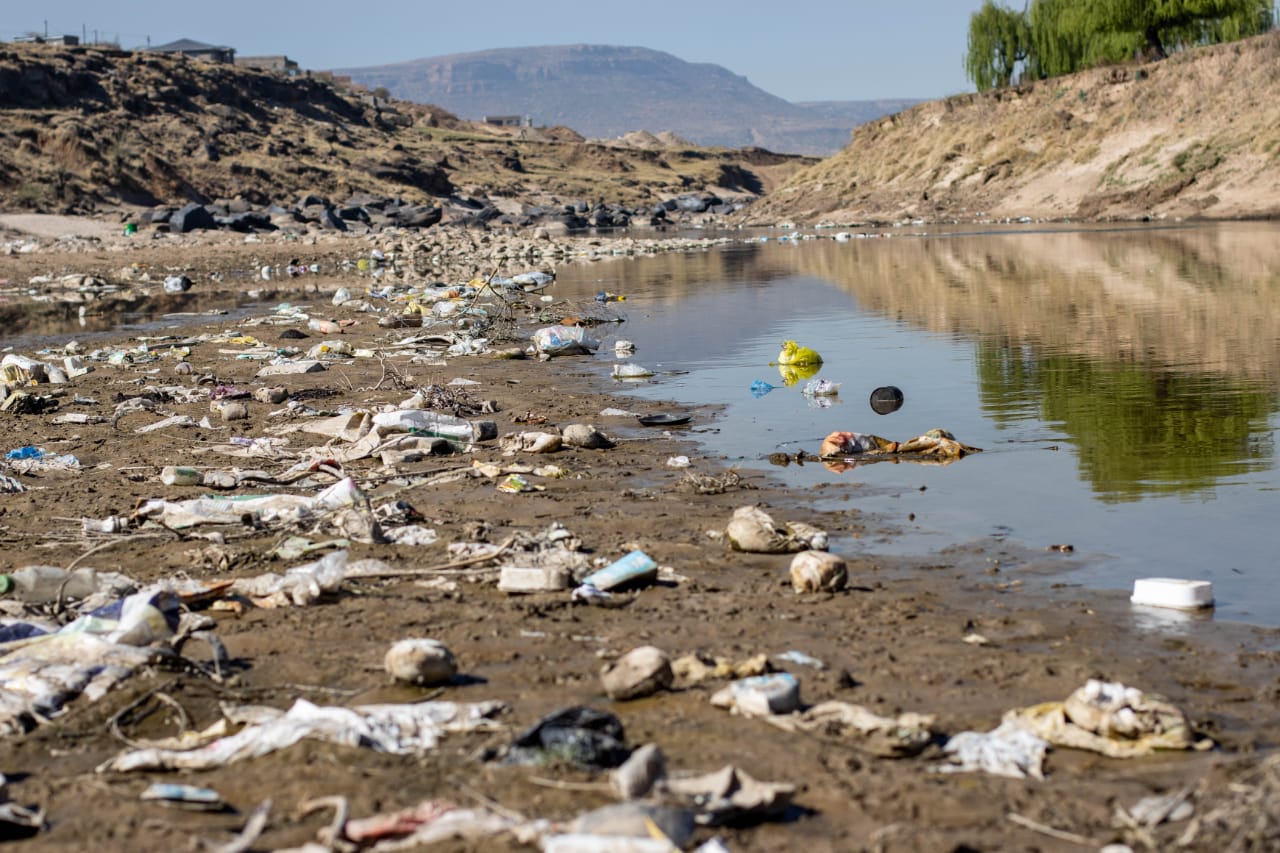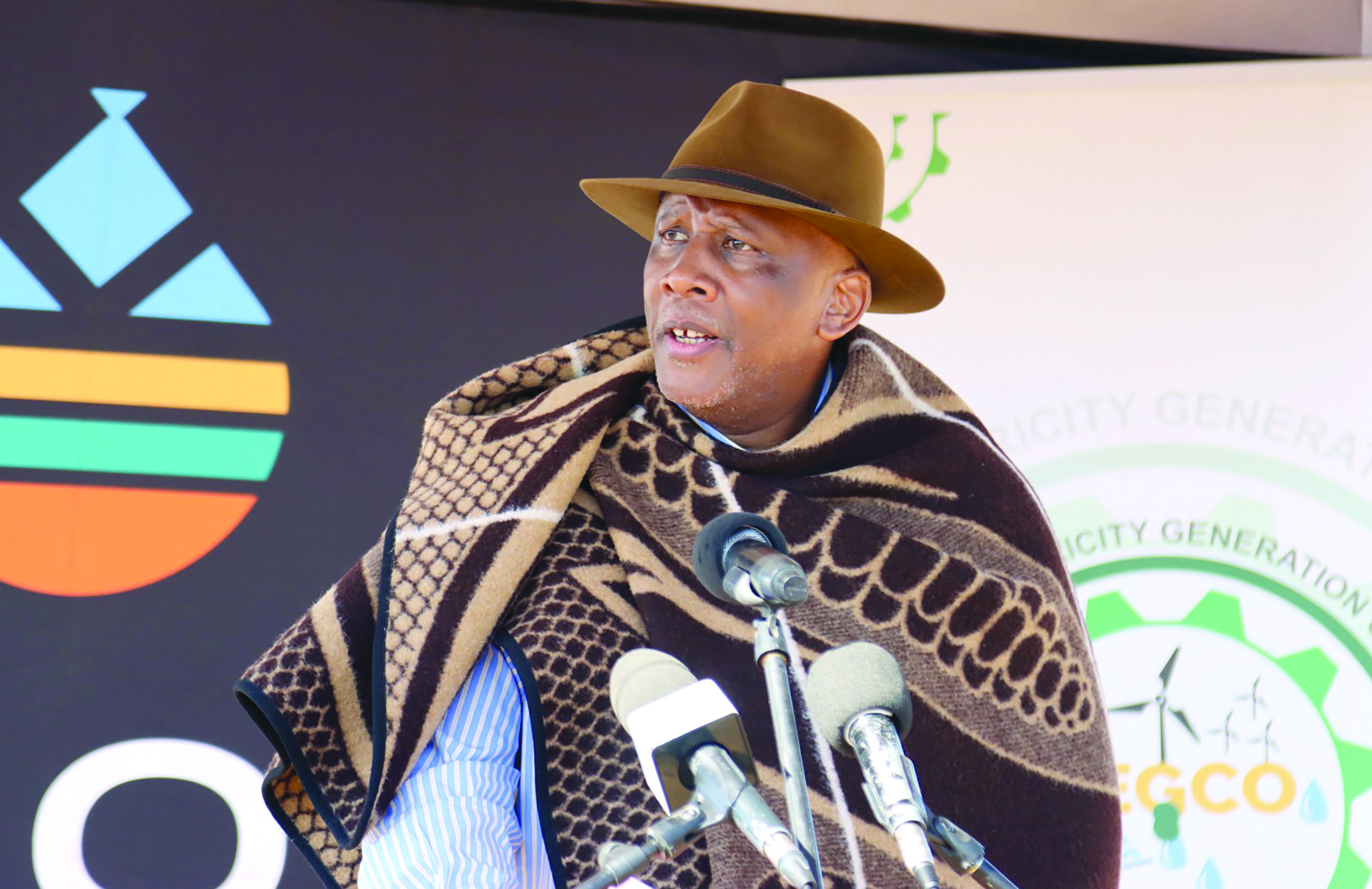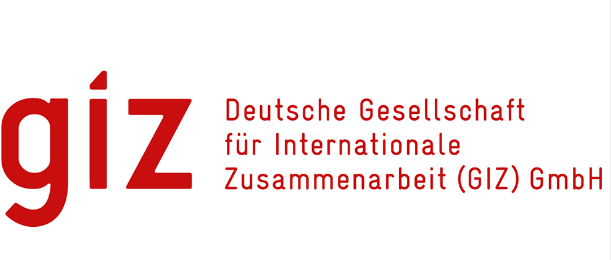By Lehlohonolo Motšoari
In a concerted effort to combat plastic pollution, the European Union, in collaboration with ReNOKA, ORASECOM, and Pheha Plastic, a local recycling enterprise, convened at Makhoarane, Morija.
This union marked the launch of the Orange-Senqu Source to Mouth Clean-up campaign in March 2024, aiming to mitigate plastic pollution flowing through the Mohokare and Senqu Rivers into the beaches.
Building upon the success of the previous campaign initiated in the Senqu River last year, the current endeavour extends from the source river in Lesotho to the river mouth in Namibia.
The overarching objective is to raise awareness about the severe repercussions of plastic pollution on rivers, water quality, wildlife, and public health.
Engaging students from Morija Primary School, Matsieng Primary School, St. Louis Primary School, and the American International School of Lesotho, alongside community members, the clean-up campaign targeted the vicinity around the Morija conservation dam.
The focus was on advocating for the preservation of land and water resources, specifically addressing plastic pollution, climate change, and land degradation.
Throughout the campaign, students actively participated in educational activities elucidating the interdependence of land and water ecosystems.
They partook in environmental activism, recycling initiatives, and advocacy sessions aimed at mitigating the environmental impact of plastic pollution on waterways, ecosystems, wildlife, and food sources.
Paola Amadei, the Head of the European Union Delegation to Lesotho stressed the imperative of sustained community clean-up efforts for environmental cleanliness.
She urged students to disseminate the knowledge acquired from ReNOKA and Pheha Plastic to their peers and families.
“If you don’t continue to raise awareness, be responsible, talk to your peers; we will continue to fight pollution and we will never end,” emphasised Amadei.
She added, “Take the message against plastic pollution, but in general pollution, back to your schools, to your friends, and to your families.”
Matsolo Migwi, Deputy Coordinator of the ReNOKA programme underscored the shared responsibility of Basotho in preserving their land and water resources, emphasising the crucial role of children as champions of environmental preservation.
“Lesotho is within the basin of the Senqu River; therefore, it is our responsibility to keep our water sources clean so that the water that flows to the beaches is clean. I’m also thankful that children are the champions of this initiative: when you go home, see to it that wherever you are, your environments are clean,” she said, urging the students to uphold cleanliness in their surroundings.
Similarly, ‘Malintle Kheleli, Environment and climate change expert emphasized the importance of instilling environmental consciousness in youngsters from an early age, aligning with the integrated curriculum’s call for environmental stewardship.
“We are not only here to tick the box, we are here because we want to address the curriculum and our intergraded curriculum calls for us all to see to it that our environment is well taken care of,” she stressed.
“Pheha Plastic envisions a future where waste is transformed into valuable resources,” said founder Limpho Thoahlane.
She added, “Our goal is that through this clean-up, community outreaches, and educational environmentalism; between 2024 and 2025, we must have a waste management system and waste management structure that can serve as an example of what waste management can be in the entire country.”
The presence of Mantsopa Rotary Club at the clean-up event highlighted their commitment to human development and environmental conservation.
Lemphane Lesoli, a club representative, stressed the significance of environmental stewardship for future generations’ well-being.
“Environment is the critical component of our lives, because what we do today to the environment is the reflection of the reality of the environment for the coming generations,” Lesoli implicated, adding, “I also urge you all to engage in a continuous clean-up of our wetlands so that our water can reach the beaches clean and healthy.”
Sebaka Kamolane from Morija Primary School expressed gratitude for the opportunity presented by Re Noka and Pheha Plastic, pledging to apply the lessons learned from the event in their daily lives.
Through collaborative efforts and community engagement, these initiatives strive to combat plastic pollution and foster environmental sustainability, paving the way for a cleaner and healthier future.
Summary
- Building upon the success of the previous campaign initiated in the Senqu River last year, the current endeavour extends from the source river in Lesotho to the river mouth in Namibia.
- “We are not only here to tick the box, we are here because we want to address the curriculum and our intergraded curriculum calls for us all to see to it that our environment is well taken care of,” she stressed.
- “Environment is the critical component of our lives, because what we do today to the environment is the reflection of the reality of the environment for the coming generations,” Lesoli implicated, adding, “I also urge you all to engage in a continuous clean-up of our wetlands so that our water can reach the beaches clean and healthy.

Your Trusted Source for News and Insights in Lesotho!
At Newsday Media, we are passionate about delivering accurate, timely, and engaging news and multimedia content to our diverse audience. Founded with the vision of revolutionizing the media landscape in Lesotho, we have grown into a leading hybrid media company that blends traditional journalism with innovative digital platforms.









